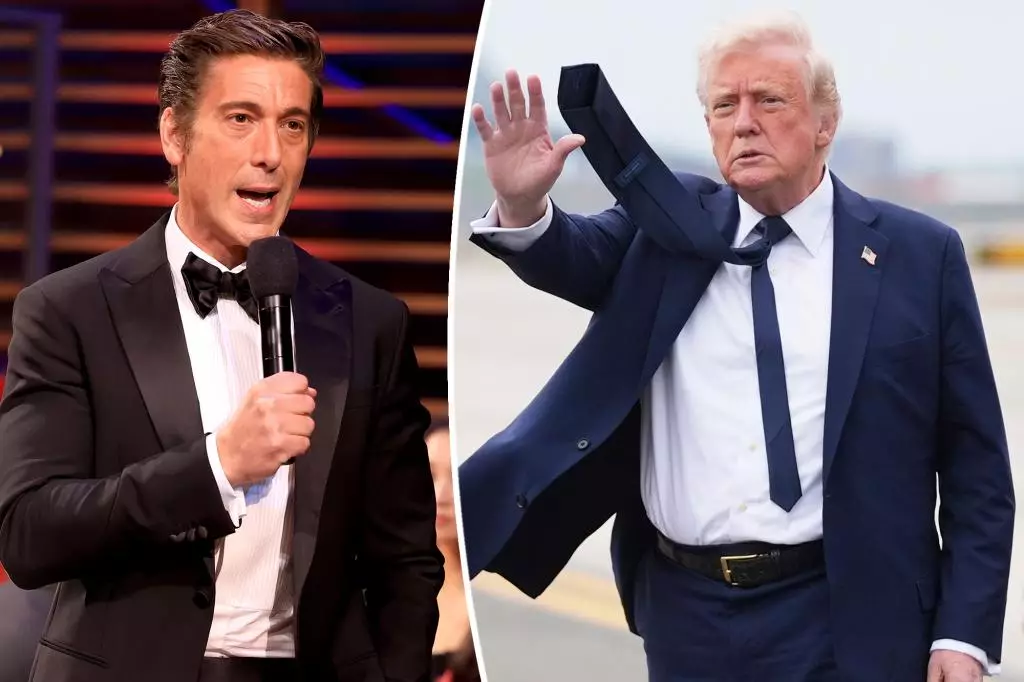Presidential interviews have long been a defining element of American political journalism, demonstrating the balance of power between the press and those in high office. However, the dynamics become especially interesting when the interviewee is a figure as polarizing as Donald Trump. His interviews usually stir controversy, challenge journalistic integrity, and offer a glimpse into his administration’s stances. The recent decision by ABC News not to feature their marquee anchors, David Muir and George Stephanopoulos, in a primetime interview with Trump raises questions not only about media strategies but also about journalistic ethics in an increasingly factionalized political atmosphere.
Avoiding the Lightweights: Trump’s Battlefield of Media
Trump’s aversion to certain journalists and networks is not just anecdotal; it reflects a deeper strategy of media manipulation, where he dictates the terms of engagement. The strained relations with Muir, who came under fire from Trump during the chaotic 2020 debate season, illustrate that the former president prefers adversarial settings to avoid hard-hitting questions. His disdain towards Muir—characterized by personal jabs—indicates a broader contempt for journalistic integrity as he often positions himself against the mainstream media. Critics argue that this approach weakens the fabric of political discourse and undermines the overall accountability which a rigorous press encourages.
Choosing Terry Moran: The Boundaries of Credibility
By handing the interview over to Terry Moran, a lesser-known figure in the pantheon of American journalism, ABC News appears to be making a calculated decision. While some see it as a strategic maneuver to avoid confrontation, others interpret it as a concession to Trump’s whims. Given the backdrop of Trump’s inflammatory commentary about the credibility of mainstream journalists, awarding an interview to a more neutral correspondent rather than the network’s prominent faces could be deemed a capitulation. The implications of this choice extend beyond sheer ratings; it plays into the narrative of delegitimizing established media at a time when trust in the press is crucial for healthy democracy.
Media and Accountability: A Call to Arms for Journalists
In this context, the role of journalists becomes critical. It raises the stakes for the press to redefine how power is engaged and challenged through dialogue. Choosing not to confront taboo topics or figures can lead audiences to question the authenticity of news sources. Young and aspiring journalists watching this saga unfold might take away the wrong lessons about how to engage with power. Instead of conceding ground to evasive interviews, the media should strive to demand accountability while adhering to responsible journalism.
Ultimately, while the upcoming interview with Trump may attract viewers and generate headlines, it remains essential for political journalists to reaffirm their role in democracy as checks on power rather than mere chroniclers of events. In this high-stakes game, the erosion of confrontational, fact-based journalism poses risks not just for newsworthiness but for the accountability that sustains democratic ideals.

